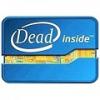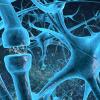Hi longecity,
Since my early teenage years I've suffered from a range of psychological symptoms including restless sleep, mood swings, hightened aggression, obsessive and compulsive toughts and behaviours, addictive personality, worsening self-control, depression, shifting adhedonia, abyssmal motivation, anxiety and increasingly worsening working memory. My sleep is interrupted anywhere from 2 to 5 times a night and I can easily "sleep" 13 hours a night yet wake up feeling like i've slept nothing at all leaving me in a zombie-like daze the rest of the day. My parents weren't the type to concern themselves with it and by the time I came to figure it out on my own the symptoms had manifested into what they are today. My chronic nasal blockage seemed to be the least of my problems but it's likely to be the major cause of all of them as it predates the above symptoms entirely.
I've got an appointment with an ENT specialist next week but in the meantime I'd like to share a little about my experience with treating the symptoms throughout the years. At this point I do not know the cause of my apnia, only that my right sinus is blocked almost completely and permanently, the septum has been described by my GP as "bent", there is a presence of a polyp in the right cavity, I'm heavily susceptible to sinus allergies yet neither cavity reacts to anti-histamine sprays or medications. I am 27, 183cm, 89kg and have only been mildly overweight in the past. I'm taking a recording tonight to see if I snore.
In my trail & error quest to cure the symptoms I've made numerous lifestyle changes and took plenty of supplements to no real avail (nothing beasts a good night's sleep, huh?) but a few had some positive effects.
Noopept (and piracetam?)
I bought this back when I learned about noots so I can be "smarter". It didn't have any perceivable effect on my cognitive functioning at any dose but I recall having longer and more vivid dreams while I was taking it. I only took it first thing in the morning but I no doubt woke up less frequently during the night. I can't say I remember feeling more refreshed, though, but according to some users here, they have claimed piracetam to have also given them more vivid dreams when taken just before sleep PLUS some claimed waking up feeling more refreshed despite the sleep apnea. It could be that piracetam lessens the effects of hypoxia somehow. I'm expecting a delivery of noots soon so I'll keep you posted!
Ketosis
One of the many things I tried were a number of different diets and to this day I feel best while I'm in ketosis. A simple online search reveals a number of studies showing a relationship between sleep deprevation/apnea and altered glucose metabolism. According to the wikipedia article on the effects of sleep deprevation on the brain it states "PET scans shows global decrease in glucose metabolism in response to sleep deprivation. As subjects become increasingly impaired on working memory tasks, a more specific decrease of glucose occurs in the thalamus, prefrontal cortex and posterior parietal cortex." in reference to this paywall study: Neurocognitive Consequences of Sleep Deprivation. Glucose-rich foods (even high beans and rice) make me lethargic and moody whilst a day or two into a ketogenic diet (after a fast) will stabilize my symptoms, albeit slightly. Perhaps by cutting out faulty glucose metabolism entiely and replacing it with ketone metabolism I am somehow avoiding the worst of it.
Adaptogens
Sleep apnea is known to be detrimental to the prefrontal cortex by means of cell death and hypoxia-induced hypofrontality. While I have yet to formally verify this it would explain away each and every one of my symptoms. One symptom to note is my propensity to become addicted. I am thus unable to delay gradification as the delaying of a dopamine spike is like torture. I can't focus on a project: I need food breaks, music on loop, porn breaks, twitter breaks or else my legs start to shake.
One time I tried the nofap challange and after 3 days I had a relapse in my anxiety, a massive headache and nausia. Not only did I feel stressed but the more stress I felt the more justification I seem to give myself to give in to the urge. (This is true when I'm fasting or avoiding sugar; I get anxiety and with each attack my mind immediately thinks of food as if it's a cure and it subsides when I give in and eat 5 croissants dipped in jam.) When I finally gave it and "relieved myself" my anxiety and headache subsided IMMEDIATELY, like magic! And I go through similar situations whever I decide to temporarily give up a piece of hedonism.
Dysfunction of the PFC is known to lower self-control while addictive behavior (ie. dopamine receptor desensitization) is known to decrease bloodflow to the PFC and cause hypofrontality. This in turn leads to lower self-control and lower working memory. The dopamine system is (or was) a necessary survival adaptation that isn't adapted to having all its triggers distilled, refined and cheaply distributed and any attempts to "fix it" floods your system with cortisol as I have learned. Adaptogenic substances can be helpful here as they make the body more resilient to the effects of stress and some (like my favorate Rhodiola Rosea) suppress cortisol production and trigger the release of endorphins. Another herb that I've added to my regiment is Jiaogulan Gynostemma can help repair the dopaminergic system (Thanks to user Bateau for this study).
Excercise, Good diet, Meditation
This should be everyone's lifesyle choice, apnea or not. I do a HIIT workout first thing in the morning and some resistance 3 times a week. I do mindfulness meditation for 30 minutes a day. Good sleep should be listed here but...yeah.
I have high hopes that treating long-term sleep apnea will give me very positive results. But the question is, where do I go from there? What options are there to fix hypofrontality?
Edited by d0pp3l, 14 July 2017 - 10:22 PM.
























































